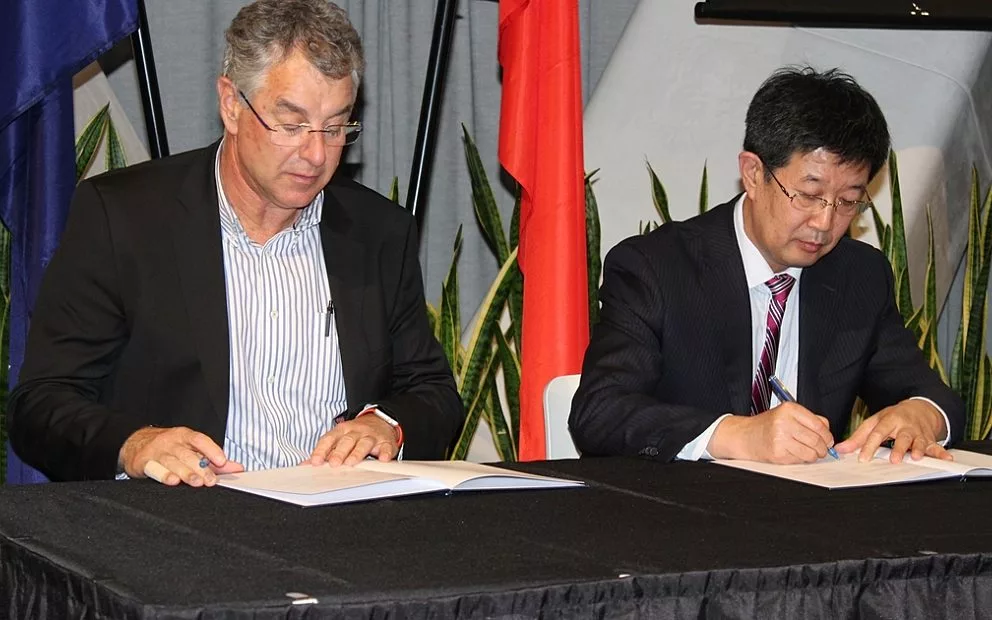Two SAHMRI researchers have joined an elite group of Australian health and medical scientists at the annual National Health and Medical Research Council (NHMRC) Research Excellence Awards.
Associate Professor Stuart Brierley and Associate Professor James Ward were last night acknowledged by their peers as leaders in their fields.
They were among 23 talented researchers who are leading the way in important projects helping to save lives, prevent disease, and improve the quality of life in Australia and globally.
Flinders University Associate Professor Brierley, the Head of Visceral Pain Research Group based at SAHMRI, is making progress in understanding and relieving debilitating gastrointestinal pain, with his biomedical research team pushing the boundaries with spider venom and other novel approaches.
Gut pain affects more than 15% of the world’s population and few treatments are available.
Associate Professor Brierley was the top ranked NHMRC R.D. Wright Biomedical Fellow (Level II) in the 2016 round, for his novel translational work investigating Irritable Bowel Syndrome (IBS) and Inflammatory Bowel Disease (IBD) in particular.
“Chronic pain is a major but under-appreciated clinical issue affecting more than 1.5 billion people globally. IBS and IBD are leading causes of chronic pain but lack effective therapies,” Associate Professor Brierley says.
While the gut can react to a range of factors from stress to chemical irritants or spicy food, the cause of chronic visceral pain needs to be linked back to the “key mediators, receptors and ion channels” and how to reduce or reduce this sensory system with new treatments.
“I am really excited about helping people to overcome chronic pain and gut pain through my work,” Associate Professor Brierley says.
“My vision is to further develop my research group into a world-leading team that identifies the novel molecular and cellular mechanisms underlying chronic visceral pain.”
The Visceral Pain Research (VIPER) Group focuses on the changes that occur within the sensory nerves and central nervous system to enable a more targeted approach to gut pain treatments – without the serious side effects.
The NHMRC Rising Star Award went to Flinders Associate Professor Ward, who is using health service and public health interventions for sexually transmissible infections (STIs), HIV and viral hepatitis to improve outcomes for Aboriginal and Torres Strait Islander people.
Associate Professor Ward, a Pitjantjatjara and Nurrunga man, is the Head of the Infectious Diseases Research Program-Aboriginal Health at SAHMRI and became a Matthew Flinders Research Fellow at Flinders University in 2017.
The NHMRC Rising Star Award is given to the top-ranked application by an Indigenous researcher in the Early Career Fellowship scheme.
Associate Professor Ward also has a strong track record in producing research outcomes including more than 85 publications, as well as many other technical and non-peer reviewed articles. He has led national research projects in areas such as STIs and blood-borne viruses, including issues surrounding injecting drug use.
Associate Professor Ward promotes and supports improved health programs in Indigenous communities around the world, and is currently in Canada meeting with experts in the field.
Associate Professor Brierley, who is the Matthew Flinders Research Fellow in Gastrointestinal Neuroscience, recently presented on one of these latest treatment breakthroughs in the US.
The NHMRC-funded VIPER Group has worked with international industry partner Ironwood Pharmaceuticals to develop a new drug, linaclotide, for patients with Irritable Bowel Syndrome with Constipation (IBS-C).
Linaclotide, a guanylate cyclase-C (GC-C) agonist, is effective in relieving abdominal pain associated with IBS-C and is available and registered for use by IBS-C patients in the USA and Europe.
Associate Professor Brierley also has contributed to a recent article in the international journalCell (22 June 2017) which discusses the work of the enterochromaffin (EC) cells in the gut lining responsible for alerting the nervous system and producing key reactions for a healthy nervous system – including serotonin for mental well-being.
Along with 60 papers (and more than 2,800 citations, H-index 29), he has published in high-ranking journals including Nature, Nature Communications, Gastroenterology, Gut and the Journal of Neuroscience.
Associate Professor Brierley has become known as a leading commentator on pain and gastroenterology at conferences and in leading medical journals. His research group includes five postdoctoral researchers, four research assistants, two PhD and one Masters student.
Among the specialised research projects is investigations into the use of the ‘Hm1a’ spider venom and marine cone snail (Conus victoriae), to reduce pain responses among IBS patients.
The NHMRC awards are recognition from their scientist peers as meeting the highest national and international standards for their selected area of medical research.
Each year, NHMRC provides over $800 million in funding for medical research in Australia.


